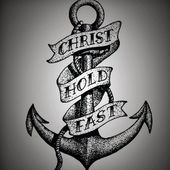OK, so the title is a little hyperbolic, and perhaps I give my own tastes too much credit. Regardless, I think these podcasts are worth your time.
I want to add that while some individual churches do publish podcasts, and I do listen to a few of those, I want to keep this list unaffiliated to any one congregation. So, there are no individual church podcasts in the list. I hope that’s understandable.
No particular order follows, just good, solid content. May these all richly bless you.

Fire on Your Head
Fire on Your Head (Steve Bremner) is one of the best charismatic podcasts out there. A missionary in Peru and a Canadian national, Steve brings a different perspective. I find myself saying “amen” to this podcast more than any other, and for those of you who have wondered what a podcast of Cerulean Sanctum might be like, Fire on Your Head is about as close as it gets. I’m working backward from 2015 in my listening to this, but so far, it’s solid stuff. The podcast on worship alone is worth 100 listens (“Entering into God’s Presence without Even Singing Songs.”)

No Lasting City
No Lasting City (Peter Smythe) is another top-notch charismatic podcast, with a focus on Bible exposition. That alone makes it unusual. Peter is a lawyer by profession, and his reasonings on both familiar and difficult passages make sense and may even challenge you to think differently about the Scriptures. My only complaint? He needs to publish more frequently!

The Phil Vischer Podcast
The Phil Vischer Podcast (Phil Vischer) examines popular culture and Church oddities through the slightly off-kilter lens of the VeggieTales creator. Joining him are Miami University of Ohio grad Skye Jethani, who provides the theological insights, and Christian Taylor, who provides the heart and the grounding. Guests appear also. Interesting, sometimes controversial, but always fun.

The Mockingpulpit
The Mockingpulpit (Mockingbird) is a team effort by the folks at Mockingbird, ardent promoters of Law/Gospel preaching from an Episcopal point of view. The messages are from a variety of speakers/teachers/preachers, but all of them are thought provoking and grace filled. Some of the best preaching I’ve ever heard has come from this site. Not every message will slay you, but many will. Soaked through with the grace we so need to embrace.

Christ Hold Fast Cast
Christ Hold Fast Cast (Christ Hold Fast) is also a team effort, but by the folks at Christ Hold Fast, also ardent promoters of Law/Gospel, this time from a Lutheran point of view. Less preaching than Mockingbird, but still offers grace-filled discussions and interviews. Caters to a younger, hipper crowd, but even this old guy likes it.

Virtue in the Wasteland
Virtue in the Wasteland (Jeff Mallinson & Daniel van Voorhis) tackles culture, history, philosophy, ethics, and religion from a Lutheran perspective. The hosts are professors at Concordia University, and the smarts in this podcast will enlarge your mind. These two down-to-earth guys will help bolster your Christian worldview, guaranteed, while the connections they draw will make you smile.

Let My People Think
Let My People Think (Ravi Zacharias) enlightens with Christian apologetics from a man who is a treasure to the Body of Christ. What I love most about Ravi: His intellect never obscures his heart. He’s got you saying “amen” one moment, and you’re crying the next. Many of the podcasts are repeats of older talks, but fresh material arrives now and then. No matter, it’s all superb.

Unbelievable?
Unbelievable? (Justin Brierley) is the quintessentially British take on apologetics, with a BBC-like feel. Host Justin usually features two guests from opposing sides who discuss a theological or ethical issue. Given that some of the loudest atheist voices are British, it’s often atheist versus Christian. One of the headiest podcasts out there, you’ll definitely learn a few things about competing worldviews by listening. Fire up your pipe, pour a couple fingers of 18-year-old Talisker, and have a go.

The God Journey
The God Journey (Wayne Jacobsen) is a podcast for folks burned by institutional “churchianity.” While I have reservations about Wayne’s association with the book The Shack (he was a collaborator with the author), I’ve found his insights into letting go of religious dross and renewing one’s intimacy with God to be freeing, plus he comes from a solid Foursquare background. Still, he remains controversial. If you feel the way we do Church in America makes cold, hard stones instead of warmhearted disciples, Wayne might be worth a listen.
So, lend these podcasts an ear if you want to be edified. And feel free to comment or to suggest other Christian podcasts you find helpful.
God bless you.

